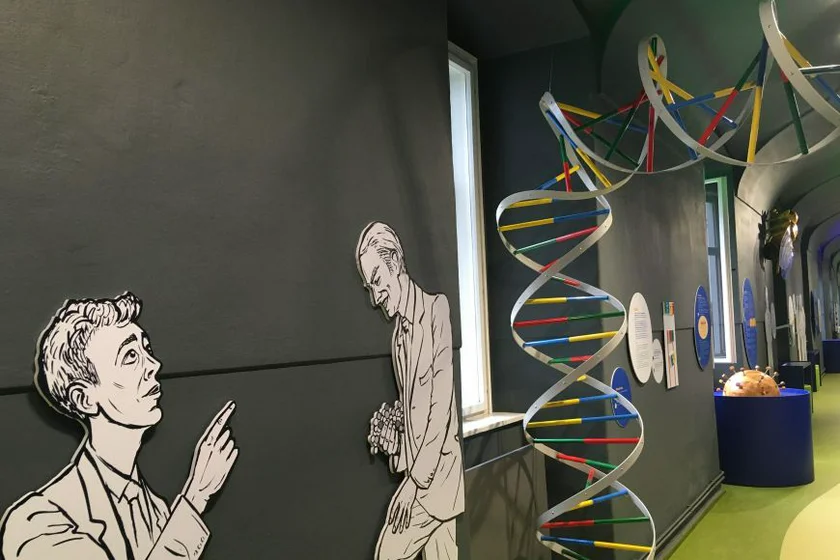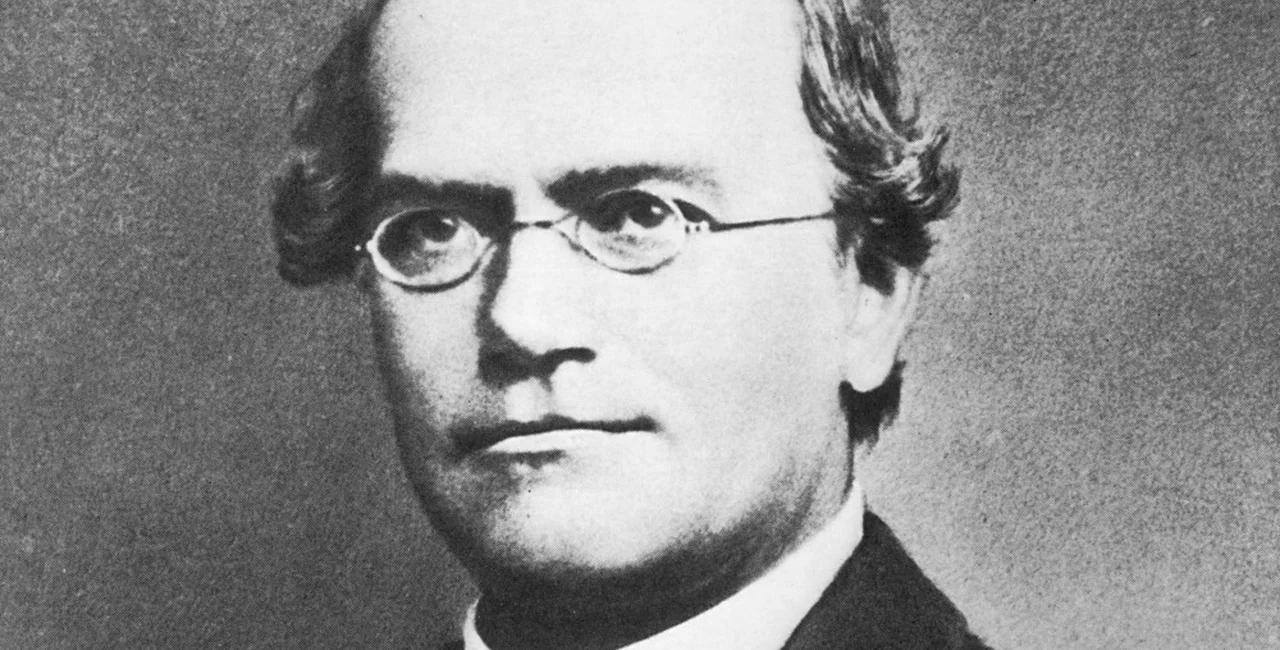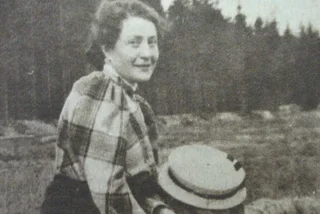Today marks two hundred years since the birth of Gregor Johann Mendel, the Moravian-born biologist who is often referred to as the “godfather of modern genetics.”
In honor of this bicentennial, the Mendel Museum at Masaryk University has opened a new permanent exhibit "Genetics: The Wonderful Journey into the Cell Nucleus" that invites visitors to explore the secrets of the cell nucleus, and uncover interesting facts about Mendel’s experiments, discoveries and the foundations of genetics and molecular biology.
PARTNER ARTICLE
The exhibition features interactive elements and interesting models designed by MU students whose ideas were transformed by Studio M+ into real exhibition pieces.
In addition, a conference named for the biologist commenced today in Brno. The recipients of the Nobel Prize in Chemistry Ada E. Yonath from the Weizmann Institute of Science in Israel and Thomas Cech from the University of Colorado, as well as Paul Nurse from the Francis Crick Institute in London, winner of the Nobel Prize in Physiology or Medicine, will attend The Mendel Genetics Conference from July 20-23.

“I am a geneticist and even during the Cold War I wanted to see the place where Mendel made his ground-breaking discoveries. I managed to visit the monastery, I discovered a small museum dedicated to Mendel and I also saw his grave. All this made a strong impression on me and I have since returned to Brno many times,” said English scientist Nurse upon receiving an honorary degree from Mendel University in 2020.
For those who aren’t familiar with Mendel the first question to address is whether, like Kafka and Freud, Czechs can claim Mendel as their own. The preeminent scientist of the 19th century came from a village on the Moravian-Silesian border that is now called Hynčice, but during his lifetime was known as Heizendorf, an entirely German-speaking part of the Austro-Hungarian empire.
- Mendel University in Brno was renamed for the famed botanist in 1994.
- Mendel Museum at Masaryk University in Brno (est. 2007) is located on the premises of the Augustinian abbey where Mendel lived and worked.
- A 2013 Italian film "The Gardener of God" portrays Mendel's life and works.
- A 1996 biography by Vitezslav Orel "Gregor Mendel: The First Geneticist" is available in English translation.
- In 2007, the Gregor Johann Mendel Science Station, a Czech research station in Antarctica, was founded by polar explorer Pavel Prošek.
If language is any indicator of nationality, Mendel taught in both Czech and German though how well he spoke Czech is debated among scholars. Mendel, who entered a monastery to help fund his studies was born Johann but was given the Czech name Řehoř (Gregor) when he joined the Order of Saint Augustine in Staré Brno.
Mendel was inspired by both his university professors and colleagues to study the hybridization of plants. It was in the monastery’s 2 hectares (4.9 acres) experimental garden he began his nearly decade-long experiment, cultivating and testing some 28,000 pea plants between 1856 and 1863.
According to the National Genome Institute, Mendel's eight-year study of pea plants, which began in 1857 and involved the careful pollination of plants, collecting of seeds, and analysis of succeeding generations, led to the concept that heredity is transmitted in discrete units.
“From the earliest time, people noticed the resemblance between parents and offspring, among animals and plants as well as in human families, Mendel turned the study of heredity into a science,” the institution writes.
Mendel’s enormous contribution to science went beyond the philosophies surrounding preformation set out by Aristotle and, later, Darwin’s theory of evolution, which called for the addition of a mechanism for the transmission of characters between generations – a hypothesis Darwin himself found unsatisfactory.
Some critics have suggested that the data in Mendel's outcomes are "too good to be true," and that by the laws of statistical variation and the linking of certain traits his experimental results should not have conformed as closely to his inheritance ratios as they do. This idea has become known as "the Mendel Paradox."
Whether his data was either consciously on unconsciously biased is still a matter of intense debate but regardless, Mendel's inheritance ratios have proven accurate and his presence at the forefront of modern genetics has long been solidified.
Mendel's work went largely unrecognized until the first two decades of the 20th century when the debate between the biometricians and the Mendelians heated up.
In the end, the two approaches were combined, and in the 1930s and 1940s, the combination of Mendelian genetics with Darwin's theory of natural selection resulted in the modern synthesis of evolutionary biology.
The creators of the new Mendel exhibition aim to guide visitors from the cell mechanisms, through Mendel’s findings, to the basic principles of molecular biology.
In addition to the ongoing exhibit, visitors to the museum have the opportunity to travel back in time to the first half of the 19th century with a tour that includes a visit to the scholar's original study on the abbey’s first floor.
The conference name for the scientists aims to draw attention to Mendel's legacy and contributions. It will be followed by the Mendel Festival, which kicked off on July 17 and from July 23-24 will host a number of weekend cultural events, as well as a day-long roster of workshops for families, and concerts.












 Reading time: 4 minutes
Reading time: 4 minutes 




























